
Freedomway.ca
Remember: Please share this article if you find it educational!
We only get one chance to make a first impression.
The world is an extremely judgemental place. People judge our clothes, our posture, our hair, our skin, our grooming, our watches, our shoes, our belts, our bags/briefcases, our fingernails, our jewellery and our hygiene.
Absolutely every aspect of your physical self is under scrutiny from others 24/7 and we always rate the social ranking of our peers (whether conscious or not).
We are very quick to judge and can determine very quickly if we want to "deal" with someone based simply on appearance.
When it comes to networking and meeting people I have heard theories like:
- The first 3 seconds will earn you 3 minutes
- 3 minutes will earn you 30 minutes
- 30 minutes will earn you 2 hours
- 2 hours will earn you a day.
This kind of sounds like dating, doesn't it? The above formula applies to dating, business and networking. Meeting people is a courtship, a process and an art form.
Many people can get a fairly good image together, enough to have a 3 minute or thirty minute conversation, but one aspect of "first impressions" that I feel like many entrepreneurs, networkers and real estate investors fall apart on is the business card.
I know how hard it is to put together a good, well laid out professional business card because I have failed at it at least a dozen times in my life.
This year alone I'm on my 6th run of business cards and I'm still tweaking my formula to get it right.
Different cards are relevant for different industries and send different messages.
I can take a glance at someone's business card quickly and know instantly where they are at with their career or business.
Here are 10 business card sins that send the wrong message to the people around you:
1) Neon Card = Broke, needs attention because he/she doesn't know how to get attention in other ways.
2) Picture on card = Self Employed, potentially broke.
3) "Get FREE cards on card" = Cheap, run away.
4) "Bob and Sally Smith" (2 names on card) = Not committed enough to get separate cards, run away.
5) Card that looks like $100 bill = broke person.
6) Card that boasts $500 referral fee = salesman who doesn't know how to get real referrals.
7) Card that says "Specializes in" with too many items = specializes in nothing, doesn't have a niche or identity.
8) Home made card = disaster, not serious and cheap.
9) Card with yahoo/hotmail address = not serious, will repel serious people.
10) No logo on card = either super classy or very very bad identity with no branding.
I have really studied business cards this year because I have sent the wrong message out on 5 runs so far. My 6th run is getting closer to perfection.
A general rule of thumb for a business card is "Would Donald Trump put this on his card?" If the answer is "no", then YOU DO NOT put it on your card.
Who said success was hard? This is a very simple rule to follow. At the bottom of this article I have posted the business cards of Donald Trump, Abraham Lincoln, Bill Gates, Ben Franklin and Albert Einstein. Notice the similarities.
Here is the formula for a good card:
TOP LEFT = Your Logo, company name.
YOUR NAME
YOUR POSITION (Hopefully not CEO or President)
YOUR WEBSITE
YOUR PHONE NUMBER (No personal cell numbers)
FAX
EMAIL ([email protected])
OFFICE ADDRESS OPTIONAL.
Remember: Your business card is NOT a billboard, do not make it scream from space. Be professional, look professional, act like the boss and people will treat you like the boss.
Happy printing,
Stefan Aarnio
Freedomway.ca
P.S. Please share this article if you found it educational!




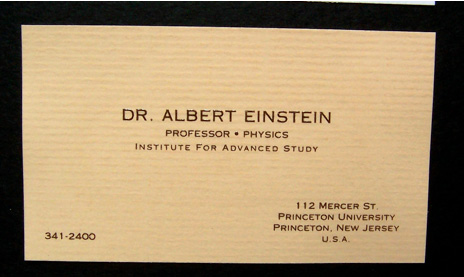
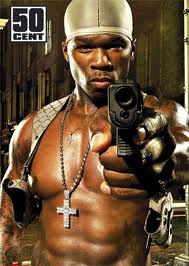


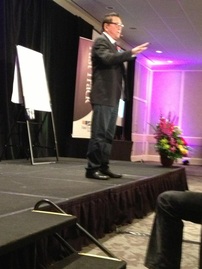
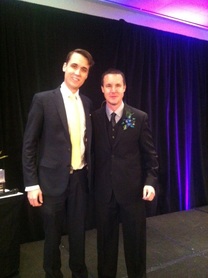
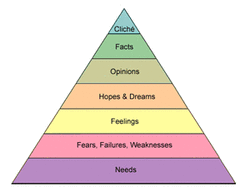

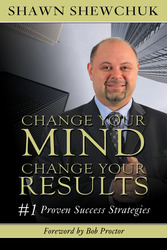
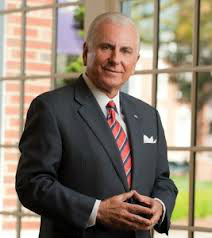
 RSS Feed
RSS Feed

